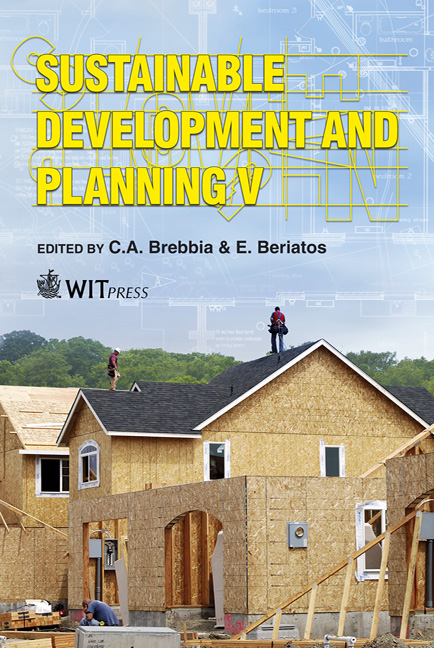Limits And Possibilities For The Promotion Of Sustainable Development: The Case Of Northwest Region Fluminense
Price
Free (open access)
Transaction
Volume
150
Pages
10
Page Range
19 - 28
Published
2011
Size
3,082 kb
Paper DOI
10.2495/SDP110021
Copyright
WIT Press
Author(s)
D. C. Vivas Neto & E. A. Nascimento
Abstract
This paper aims to present partial results of the first stage of a participatory research conducted in the Northwest Region of the State of Rio de Janeiro, from July 2009 to June 2010. This region has the lowest HDI (Human Development Index) of the State of Rio de Janeiro, and the State Secretariat for Planning and Management projects for the next 25 years GDP to grow by only 4.11%, in total for the Region Northwest Fluminense. This reality prompted the formation of a working group consisting of social actors such as community members, representatives from the local government and the Federal Fluminense University, aiming to build innovative forms of development for this region. In this sense, we conducted a participant survey whose main steps were: data collection of the socio-environmental region, and systematization of information collected through discussion groups and seminars. As a result we created the Board of Municipal Secretaries of the Environment - COSEMA. This Council empowers its members to promote dialogue of environmental public policies in the region, establishing itself as a strategy for encouragement in order to radiate toward the state and federal political levels. Keywords: sustainable development, regional planning councils, governance. 1 Introduction Brazil lives, from the early years of the XXI century, a resumption of economic growth, a process interrupted in the 80s. Major Projects and programs are being implemented in different regions that compose it. The state of Rio de Janeiro, a part of the Southeast, is one of the cities that have received large investments,
Keywords
sustainable development, regional planning councils, governance.





